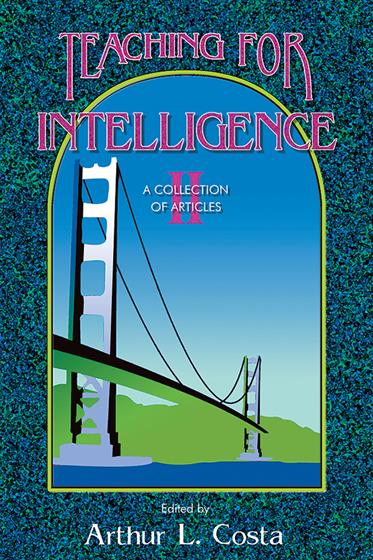Introduction: New Perspectives on Intelligences
Section 1: Flexibility in Thinking: The Capacity to Shift Perspectives, to Generate Alternate Approaches, and to Change One's Mind
1. Systems Change in Education
2. Unleashing the Power of Perceptual Change
3. Changing Curriculum Means Changing Your Mind
Section 2: Applying Past Knowledge to New Situations: The Capacity to Draw Forth Prior Knowledge and Transfer it to New Situations
4. Learning and Transfer--A Tautology
5. What Do We Know From Brain Research?
6. Art for the Brain's Sake
Section 3: Metacognition: The Human Capacity to be Aware of and Reflect on Our Own Thinking
7. Memory, The Thing I Forget With
8. Creativity Is a Decision
9. Revisiting Effective Teaching
10. Multiple Intelligences and Reading Instruction
Section 4: Questioning and Problem Posing: Innate Human Curiosity and the Capacity for Healthy Skepticism
11. The Mad Dash to Compute: Enriching or Eroding Intelligence?
12. Educators Need to Know About the Human Brain
13. Raising the Ceiling for All Students: School Improvement From a High-End Learning Perspective
Section 5: Striving for Accuracy, Precision and Elegance: The Human Yearning for Craftsmanship
14. Learning Standards
15. What Sorts of Standards for Teachers? Focusing on Exemplary Elementary Teaching
16. Constructivist Assessment in Early Childhood Education
17. Test Success in the Brain-Compatible Classroom
Section 6: The Humility of Continuous Learning: The Human Capacity for Self-Renewal
18. Challenging Mathematics for Young Children
19. Reinventing Our Literacy Programs: Books, Basics, Balance
20. Mediated Learning Experience: Professor Reuven Feuerstein Responds to Some Critical Questions
21. Learning to Learn: The Cognitive Enrichment Advantage Approach
Authors
Acknowledgments
Index



